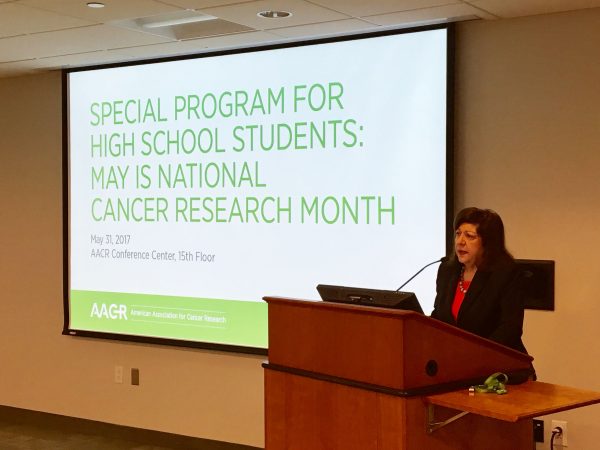Is Comprehensive Genomic Profiling Ready for Prime Time?
Next-generation genome analysis technologies allow for the sequencing of multiple genes at once to characterize the mutational profile of a patient’s tumors and possibly identify a match with one of the available targeted therapies.
While multigene sequencing tests are starting to be used more commonly during a patient’s care path, researchers have been debating about the overall clinical impact of comprehensive genomic profiling. Many clinical trials conducted to understand whether identifying unexpected mutations that could be targeted with experimental therapies can improve outcomes for patients have yielded conflicting or inconclusive results. There is also a lack of guidance for oncologists on how to interpret the results of genomic testing and how to apply them to therapeutic decision making.
The data presented by Fabrice André, MD, PhD, from Gustave Roussy Cancer Campus, at the San Antonio Breast Cancer Symposium, which took place Dec. 7-10, 2021, provide a significant step forward in this direction. André developed and ran multiple clinical trials applying genomic profiling and demonstrated its clinical utility in metastatic breast cancer. For this work and his involvement in numerous other studies advancing precision medicine for breast cancer patients, André received the AACR Outstanding Investigator Award for Breast Cancer Research at the conference.

In 2019, his team published the results of the phase III SOLAR-1 trial, which assessed the efficacy and safety of the PI3Kα-specific inhibitor alpelisib (Piqray) in combination with the estrogen receptor antagonist fulvestrant (Faslodex) for advanced breast cancer that progressed on or after aromatase inhibitor treatment. Alpelisib led to an improvement of progression-free survival (PFS) in patients with PIK3CA-mutated tumors, whereas there was no benefit in the cohort of patients whose tumors did not have the mutation.
“We have shown that in metastatic breast cancer patients there are several recurrent genomic alterations and that, when these are drivers of cancer progression, their targeting leads to improved outcomes,” said André. “The question we then asked was, should we do multigene sequencing in each patient to identify these alterations?”
To address this question, André and colleagues developed the SAFIR-01 trial to study the feasibility of high-throughput genomics for diagnostic use. They then performed the phase II MOSCATO-01 trial to assess whether multigene sequencing was effective. The results of this study showed that approximately one-third of patients derived some benefit from this approach. The latest study, which he presented at SABCS 2021, was the SAFIR02-BREAST randomized trial that aimed to test whether multigene sequencing could improve the outcomes for patients and how the results can be best interpreted.
The trial enrolled patients with metastatic, HER2-negative breast cancer and assessed whether targeted therapies guided by genomics improve PFS compared to maintenance chemotherapy. The researchers performed a pooled analysis of this trial and another trial, SAFIR-PI3K, which compared a combination of alpelisib and fulvestrant with maintenance chemotherapy in patients with PIK3CA-mutated metastatic breast cancer.
Genomic analysis through next-generation sequencing and SNP array was performed on tumors from 1,462 patients. The investigators assigned 238 patients, whose disease was stable after six to eight cycles of chemotherapy and who carried known genomic alterations, to either the appropriate targeted therapies matched to their genomic alteration (157 patients) or maintenance chemotherapy (81 patients).
The drugs included in the study were vistusertib, AZD4547, capivasertib, sapitinib, selumetinib (Koselugo), vandetanib (Caprelsa), bicalutamide (Casodex), olaparib (Lynparza), and alpelisib, and were matched to the following targets respectively: m-TOR, EGFR, AKT, HER2 or EGFR, MEK, VEGF or EGFR, androgen receptor, and PARP.

The genomic alterations identified in the patients’ tumors were classified using the ESMO Scale for Clinical Actionability of molecular Targets (ESCAT), which ranks the likelihood of genomic alterations to serve as therapeutic targets based on the strength of evidence available from clinical studies: Mutations ranked in ESCAT tier I are defined as ready for routine use as they can be matched with a targeted drug and provide improved outcomes; investigational mutations ranked in tier II are those for which a targeted drug has shown antitumor activity in phase I trials, but the magnitude of benefit is not known as there are no randomized trials available. Below ranks I/II, the level of evidence available is not enough to establish whether a genomic alteration is important or not in guiding the therapeutic decision.
In the SAFIR02-BREAST trial, among 115 patients presenting an ESCAT I/II genomic alteration, those who received a matched targeted therapy had a longer median PFS than those who received maintenance chemotherapy (9.1 and 2.8 months, respectively), while there was no significant difference in PFS between the two arms in the overall population. This indicates that the ESCAT classification was highly predictive of the benefits of targeted therapies matched to genomic alterations.
According to André, the question is no longer whether genomic analysis should be part of patient care, but how to put the results in the right context to derive the most benefit. “Our study shows that precision medicine can improve patient outcome if it is interpreted with the right tools; therefore, we need a unified system to guide physicians.” He added that the level of evidence for each genomic alteration identified should be included in the report that the labs send to the clinicians so that they can interpret the results within a validated framework of clinical actionability.
One challenge for precision medicine is rare genomic alterations. To tackle these, according to André, in addition to running single-group, practice-changing trials, it is key that the individual research groups contribute to large databases, such as AACR Project GENIE. These databases inform the investigators and the regulatory agencies on the natural history of diseases characterized by rare genomic alterations, for which single institutions are not able to accumulate sufficient information independently.
In addition to testing for known genetic alterations, multigene sequencing allows researchers to discover new ones. For example, in the SAFIR02-BREAST study, André and colleagues identified 21 gene amplifications or deletions associated with metastatic evolution, poor prognosis, and drug resistance or sensitivity.
Genomic profiling can also yield information on the genetic determinants of immune suppression—for example, amplifications of the PD-L1 gene that may be targeted with immune checkpoint blockers, and on the mechanisms of genomic evolutions that underlie the emergence of secondary resistance to treatment.
In this regard, one target that is emerging is APOBEC, a cytidine deaminase that converts cytidine to uracil or thymine and can introduce mutations. “In patients with metastatic breast cancer resistant to therapy, we have observed an increased frequency of mutations related to APOBEC, raising the hypothesis that APOBEC could be activated as a mechanism of resistance to endocrine therapy and lead to new mutations that contribute to resistance,” André said.
Having established the value of genomics for personalized medicine, André’s team is now trying to expand the portfolio of genomic profiling technologies that can be applied to identify new drivers of disease and to leverage emerging tools for modeling the biology of breast cancer for diagnostic use. They are also conducting proof-of-concept studies to apply artificial intelligence and deep learning modeling to identify the features associated with relapse in breast cancer tissue sections.
The next frontier, according to André, is to be able to target the emerging molecular targets that are identified through the personalized medicine approach. To tackle this goal, he and other researchers at Gustave Roussy have launched an ambitious project in partnership with biotech and pharmaceutical companies to develop new drugs for personalized biological therapy.



